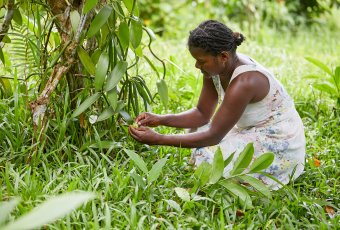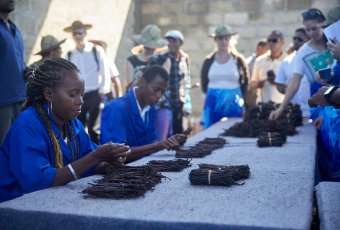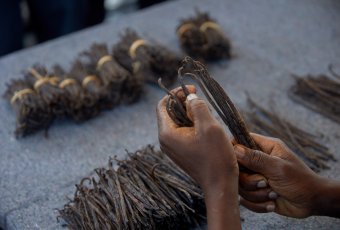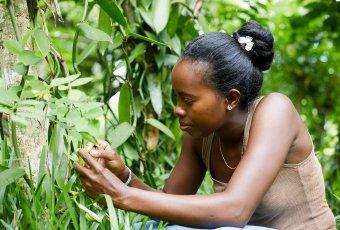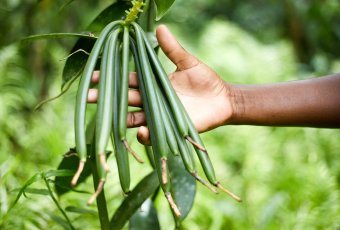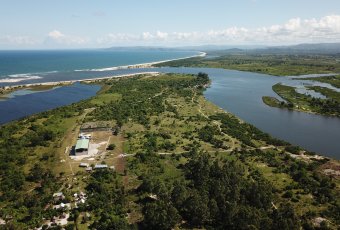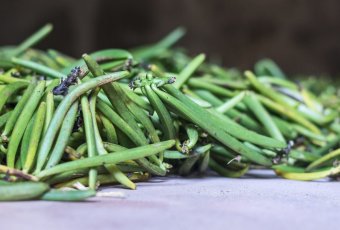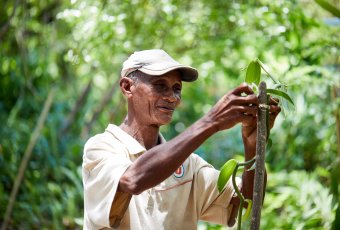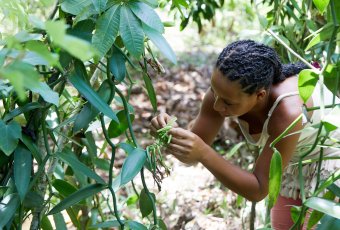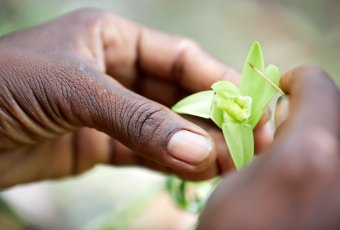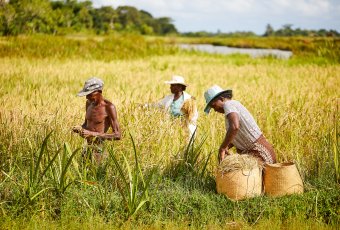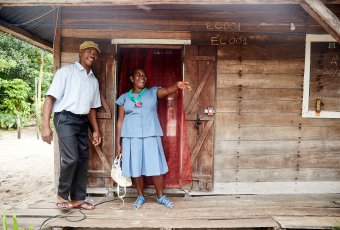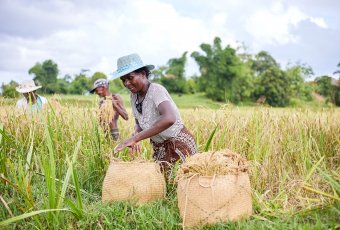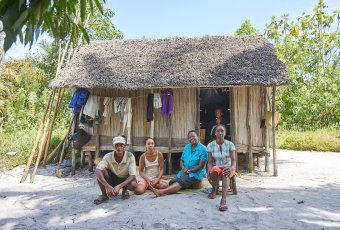The context
Vanilla is a vital ingredient that is widely used in many industries, including food, cosmetics, and perfume. 80% of global vanilla production is concentrated in a small area in the North of Madagascar, one of the poorest countries in the world. Over the past decade, vanilla farmers and industry leaders have been confronted with a difficult situation.
On the one hand, vanilla farmers are in a poverty trap – they lack efficient practices and finance to grow high quality vanilla, nor can they plan ahead to sell cured vanilla. As a result, the farmers get a low price for poor quality vanilla, reinforcing the poverty cycle. On the other hand, vanilla prices have been subject to massive theft and severe volatility due to a lack of cash flow pushing farmers into harvesting their vanilla too early, leading to poor quality in the market. Supply shortages of quality vanilla also cause speculation and increase the risk of theft from farmers. Moreover, extreme weather events, most recently cyclone Enawo in March 2017, can decimate the vanilla crop and add further stress to an already fragile system.
The project
The Livelihoods Fund for Family Farming, an impact investment fund created by Danone, dsm-firmenich, Mars and Veolia to foster sustainability and poverty reduction in supply chains, invested in a large-scale vanilla project with an innovative model where farmers and industry players share both benefits and risks.
This project, with 3,000 family farms, aims to tackle not only quality and traceable vanilla production but also food security for farmers and biodiversity conservation. It has been implemented since 2017 by Fanamby, a Madagascan NGO with extensive experience working with vanilla producers, Missouri Botanical Garden, a biodiversity conservation NGO and Maisons Familiales Rurales, an educational association.
All partners in the Livelihoods-Vanilla project have committed to the project over a 10-year span. The Livelihoods Fund for Family Farming and the French Development Agency bears the upfront financial risk by providing funding to the NGO for implementing the project and monitoring related to sustainable vanilla production and biodiversity conservation.
The social, environmental, and economic impacts
The project is located outside the Sava region where vanilla production is currently concentrated. The area has been selected as it offers lots of potential for vanilla production. The program aims to train farmers over five years on sustainable practices to increase vanilla productivity and quality through agroforestry techniques.
A social enterprise owned by the producers was created as part of the project: Tambatra, which means “together” or “unity” in Malagasy. Specializing in the vanilla sector, from planting to processing, it was structured with the support of the NGO Fanamby. It connects producers directly with the market and manages the collection, processing, and sale of vanilla. As a result, about 60% of the value of processed vanilla will go back to the farmers (compared to the 5 to 20% initially observed in the project area).
Moreover, the project seeks to protect a unique tropical forest and a wealth of biodiversity thanks to the vanilla buffer zone generating significant income disincentivize local communities to deforest, putting in place a community based governance gathering active members managing conservation activities and applied biodiversity protection laws, community patrol and planting native windbreakers and firewall tree species preventing natural disasters to affect the protected area.
It plans to offer farmers alternative economic opportunities, such as clove and cinnamon production, to preserve local forests from illegal logging and slash-and-burn practices.
Tangible results: a successful 2024/2025 season
The 2024/2025 season saw a significant increase in green vanilla collection — more than triple the volume harvested the previous year — driven by the dedication of 2,300 producers supported by Tambatra. This increased volume translates into improved income for smallholders, supported by a guaranteed minimum purchase price negotiated with buyers. A resilience plan for the 2025-2028 period supports producers towards greater autonomy by incorporating diversification with the introduction of clove and cinnamon, while strengthening social and environmental aspects within the communities.
Download the project factsheet here to discover all the details!
Our Partners:
- AFD
- FFEM
- Danone
- Mars Incorporated
- dsm-firmenich
- NGO Fanamby
- NGO Missouri Botanical Garden
- Association Maisons Familiales Rurales
Learn more:
- https://www.livelihoods.eu/transforming-the-relationship-between-smallholder-famers-companies-an-example-with-the-livelihoods-vanilla-project/
- https://www.livelihoods.eu/press-release-livelihoods-fund-invests-in-vanilla-in-madagascar/
- https://www.livelihoods.eu/vanilla-from-field-to-market-patience-precision/ https://www.livelihoods.eu/an-ngo-a-private-company-share-their-views-on-the-livelihoods-vanilla-project-in-madagascar/

